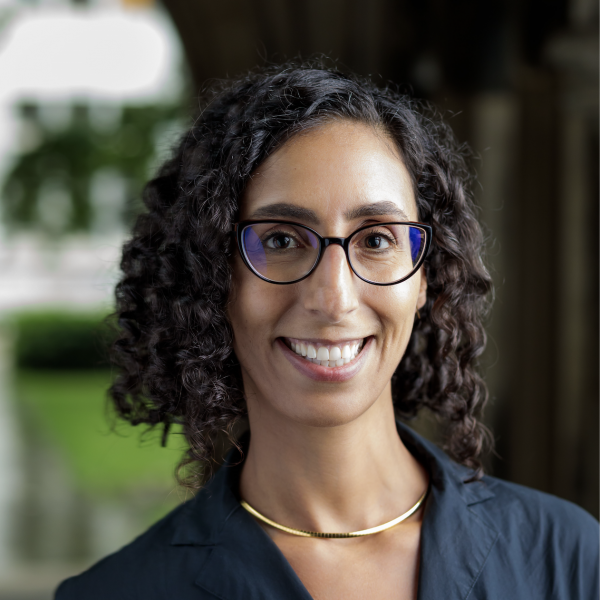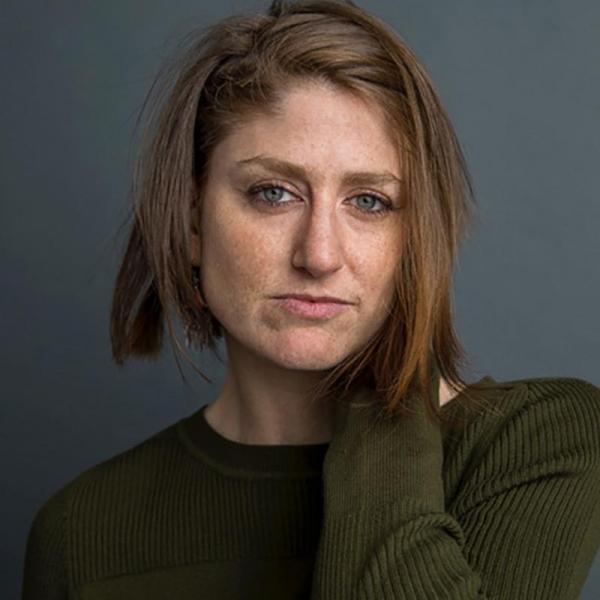
One of the country’s earliest comparative literature programs, the Department of Comparative Literature boasts a rich history of global and trans-historical thinking, internationally renowned faculty, and eminent visiting scholars. MAPH students can choose to focus all of their coursework in the Department or complement their research in Comparative Literature with classes in other subject areas, such as Cinema and Media Studies, Classics, Gender and Sexuality, Germanic Studies, East Asian Languages and Civilizations, English Language and Literature, Romance Languages and Literatures, Slavic Languages and Literatures, and South Asian Languages and Civilizations.
Selected Faculty
Sample Courses
Anticolonial Worlding (CMLT 36994) Autumn 2024
This course explores anticolonial worldbuilding through literature, film, art, and philosophy. It focuses on the role of the cultural Cold War in shaping anticolonial aesthetics and politics during the twentieth century as well as its impact on our current political moment. The mid-century was characterized by an expansion of anticolonial festivals, exchanges, and congresses and marked by political crises and coalitional solidarity across Vietnam, Palestine, Cuba, Soviet and US imperial expansion, and the May 1968 student protests. We will explore how Pan-Arab, Pan-African, Non-Aligned/Global South, Marxist-Leninist, indigenous land rights, and racial justice movements mobilized class, gender, and language politics. Exploring anticolonial literature, film, and art across a multilingual and transnational archive we will ask how socialist and speculative realisms, engaged literature, third cinema, agitprop, and other aesthetic movements generated powerful internationalist imaginations and networks of resistance. (Leah Feldman)
Trauma and Narrative (CMLT 48647) Autumn 2024
This graduate seminar invites students to engage with literary trauma studies, a field that first emerged in the 1990s, and that has more recently been undergoing decolonization processes. Following calls by scholars such as Stef Craps in Postcolonial Witnessing (2013), we will examine foundational and current literary theory by questioning its validity and applicability across different cultural contexts and languages. We will read select fictional trauma narratives, in English translation or in the original language when possible. Readings will include select psychological and psychoanalytical theoretical literature from Judith L. Herman and Cathy Caruth to Bessel van der Kolk; (literary) theory by Ruth Leys, Lauren Berlant and Stef Craps, as well as fictional texts, largely from non-Euro-Anglo-American contexts. Students working on trauma-related literary projects are welcome to contribute materials in their respective research languages. We will end the course by bridging discussions of literary trauma studies with recent debates around a pedagogy of trauma, especially as applicable the context of higher education. (Nisha Kommattam)
Previous Courses:
CMLT 37450 - Stateless Imaginations: Global Anarchist Literature (Anna Elena Torres)
This course examines the literature, aesthetics, and theory of global anarchist movements, from nineteenth-century Russian anarcho-syndicalism to Kurdish stateless democratic movements of today, as well as the literature of “proto-anarchist” writers, such as William Blake, and stateless movements with anarchist resonances, such as Maroon communities in the Caribbean.
CMLT 39714 - North Africa In Film and Literature (Hoda El Shakry)
This course explores twentieth- and twenty-first century literary and cinematic works from the countries of North Africa. We will focus in particular on the region of Northwestern Africa known as the Maghreb—encompassing Algeria, Morocco, and Tunisia. Situated at the crossroads of Africa, the Middle East, and Europe, the Maghreb has a layered colonial past culminating in France’s brutal occupation of the region through the 1960s. Inflected by this colonial history, Maghrebi studies tends to privilege Francophone works while overlooking the region’s rich Arabic and indigenous traditions. Understanding the Maghreb as both a geopolitical as well as an imagined space, our course materials reflect the region’s diverse cultural histories and practices. We will consider the Maghreb’s ethnic, linguistic, and religious pluralism in dialogue with broader questions of cultural imperialism, orientalism, decolonization, and globalization.
A more complete listing is available through the Department of Comparative Literature course page.
Comparative Literature Specialization
The Comparative Literature Specialization allows students to structure their coursework and thesis around the study of Comparative Literature within MAPH. Students who complete the following requirements will receive a Comparative Literature transcript notation:
- MAPH Core Course (Foundations of Interpretive Theory).
- Four graduate-level Comparative Literature courses, one of which is strongly preferred to be Comp Lit 501 or 502, or another approved theory course.
- An MA thesis in Comparative Literature, supervised by a faculty member in the department or someone listed as Comparative Literature resource faculty.
- Demonstration of proficiency in one foreign language, through upper-level literature or content coursework in the language, a language exam, or a letter from an instructor attesting to fluency.
Please direct any questions you may have about specializing in Comparative Literature to maph-support@uchicago.edu.
Recent Comparative Literature Thesis Projects
“Imagining Palestine: Modes of Haunting and Resistance”
Mariam Alafranji, MAPH ‘25
Advisor: Ahmad Qabaha
"The Music in Words in Music, ‘Reprendre à la poésie son bien’: A Comparative Analysis of Debussy and Fauré’s Musical Settings of Verlaine"
Yujia Liu, MAPH '21
Advisor: Haun Saussy
"How is She Not Herself? Queer Temporalities and Transformative Subjectivities in Valencia: the Movie(s)"
Nicholas Taylor, MAPH '20
Advisor: Kris Trujillo
"Lovecraft’s Rupture-Machine: An Ontology of Process Catastrophism and Inhuman Economy"
Dorian Bell, MAPH '19
Advisor: Mark Payne



